Pentagon official: makeshift jails for captured ISIS adherents in Syria ‘not sustainable’
A U.S. Defense Department official said the long-term detainment of tens of thousands Islamic State fighters and their families in makeshift prisons in northeast Syria is unsustainable and that the United States aims to move detainees to more secure facilities.
Speaking to reporters at the Pentagon on Wednesday, September 18, director of the Defeat-ISIS Task Force Christopher Maier said the U.S. continues to train and supply the Syrian Democratic Forces to guard ISIS prison facilities, and is talking “daily” with Coalition allies about repatriating foreign ISIS fighters back to their home countries.
Tens of thousands of ISIS fighters and their families were captured in Syria by the SDF, an alliance of militias led by the predominantly-Kurdish Syrian People’s Protection Units (YPG), and supported by the U.S.-led international Coalition to defeat ISIS.
The SDF oversee a number of prisons and camps throughout the country’s northeast. The largest, al-Hol, holds some 80,000 people, mostly women and children, including roughly 10,000 foreign nationals, according to Human Rights Watch.
The SDF has repeatedly called on the international community to repatriate foreign ISIS members and has backed a call by Sweden and the Netherlands for a U.N.-supervised tribunal for ISIS prisoners.
The U.S. has also asked the international community to take back their nationals.
Northeast Syrian officials have also warned that they cannot hold the prisoners for long. Head of the U.S. State Department’s counterterrorism bureau Nathan Sales said in August that the risk of jailbreaks at al-Hol is “not trivial.”
“The general assessment has been that in home countries where proper law enforcement and other facilities and safeguards are in place are … more secure,” Maier told reporters on Wednesday.
The Pentagon’s Office of the Inspector General complained in August that the drawdown of U.S. forces from northeast Syria left the Coalition unable to monitor the camp directly, and that the SDF do not have the resources to maintain security there, allowing “ISIS ideology to spread ‘uncontested’ in the camp.”
The U.S. previously sent supplies to the SDF to secure ISIS prisons in March, and continues to arm and train the militias, but Maier could not comment on whether further prison equipment had since been provided.
Instead, the U.S. is “focused on getting some of [the makeshift prisons] shut down and moved to more secure facilities, as opposed to improving them,” Maier said, adding that many of the prisons are former school buildings.
Given limited resources, the U.S. military is emphasizing on training the SDF as prison guards and wardens, Maier said.
“We’re helping the local forces be more capable of dealing with the problem themselves. In some cases that means bringing in experts who can help explain and train and help them,” he said.
Asked whether he was confident the support and training would suffice to prevent breakouts, Maier said, “The general assessment is that this is not sustainable over time.”
Speaking in Washington last week, Brett McGurk, former U.S. presidential envoy to the Coalition, said the indefinite detention of ISIS prisoners in al-Hol is a “huge problem” that the SDF do not have the resources to handle.
“Zarqawi was in a Jordanian prison … Baghdadi was in a U.S. military prison facility, al-Zawahiri was in an Egyptian prison. I mean we know what happens in these prisons,” McGurk said, referring to ISIS founder Abu Musab al-Zarqawi, current ISIS leader Abu Bakr al-Baghdadi, and al-Qaeda leader Ayman al-Zawahiri.
“The future generation of terrorists” is currently being raised in al-Hol, he added.
“You cannot allow these populations to be able to sit there all day,” McGurk said.
“I would hate to be here in ten years, when there’s some massive attack, whether in Paris or here, God forbid, and the people came out of al-Hol. That would literally be history repeating itself, because we’ve seen that movie,” he said.
“We were going to put $200 million into stabilization of Raqqa, which is like, nothing,” McGurk said last week in response to a question about the lack of international support for al-Hol, asked by Sinam Mohammed, the Syrian Democratic Council’s representative in Washington.
“And President Trump made clear we’re putting no U.S. money into the stabilization on the ground. So this is where we are,” McGurk said. “I hope the U.S. steps up to this because it’s very serious and it’s central to our own national security interests.”



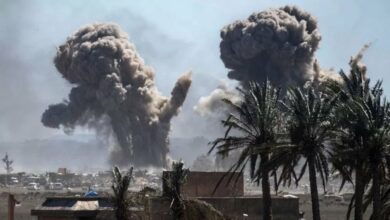
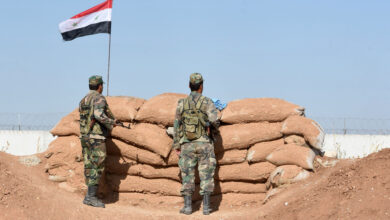
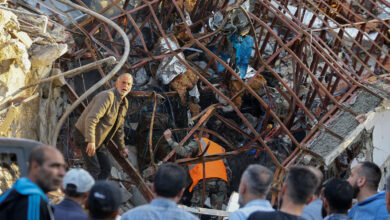

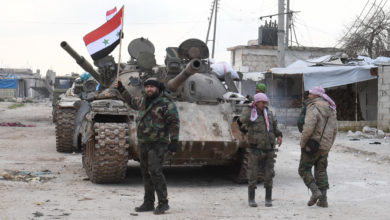


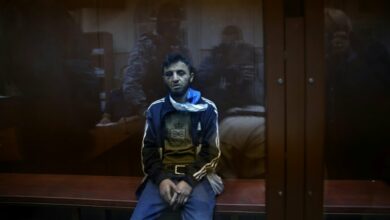
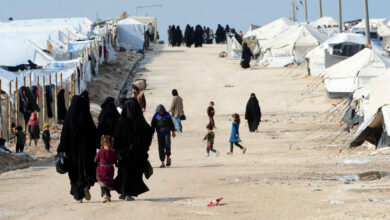
2 Comments